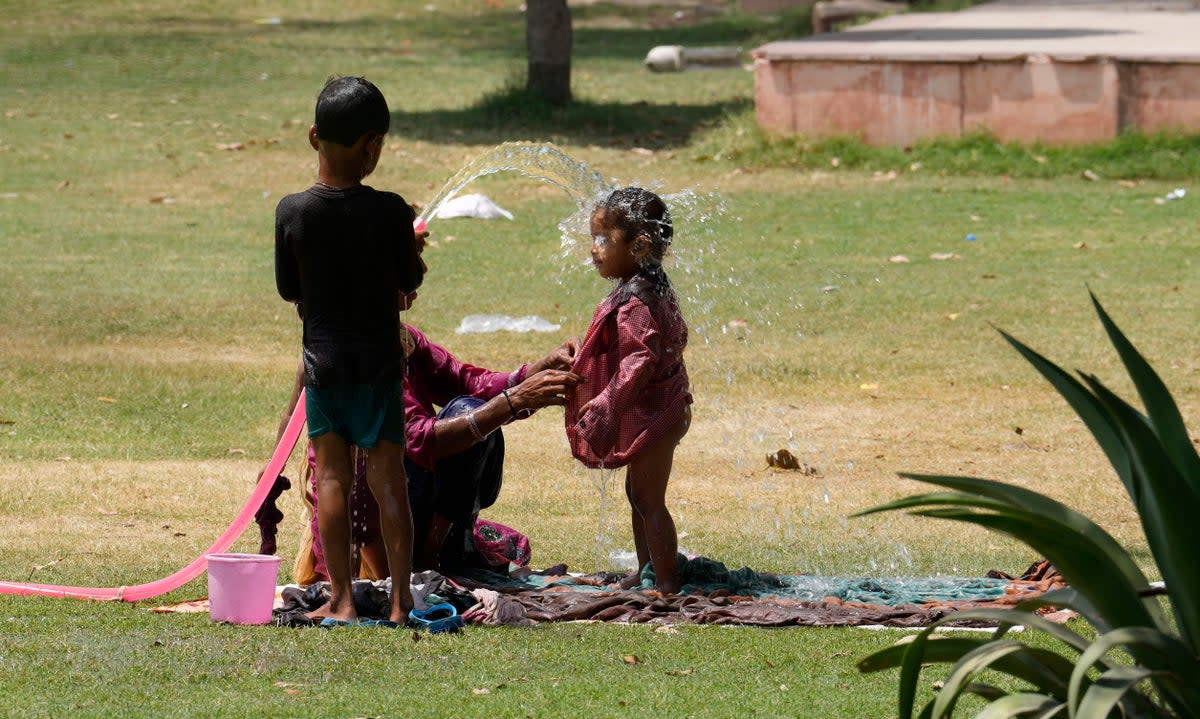One in three people on the planet hit by ‘monster Asian heatwave’

One in three people on earth are suffering under a “monster Asian heatwave” with temperature records broken across a dozen countries.
The searing heat has spread across large parts of south and southeast Asia in recent weeks, and impacted more than a dozen countries including India, China, Thailand, Laos, Bangladesh, Turkmenistan, Japan and Korea.
The temperature hit a scorching 44.6 degrees Celsius in the western province of Tak, Thailand this week, the hottest temperature ever recorded in the country. Thailand’s Meteorological Department warned that the baking weather would continue into next week.
Meanwhile, Laos broke its all-time high temperature record two days in a row. On Thursday, 42.9C was recorded in Sainyabuli agro surpassing 42.7C in Luang Prabang on Wednesday.
Bangladesh recorded 40.6C, its highest temperature in six decade. The country was forced to cut power to millions of people even as demand soared due to Ramadan festivities.
Turkmenistan set a new April monthly heat record with 42.2C.
Maximiliano Herrera, a climatologist and weather historian, described the event as a "monster Asian heat wave like none before." Japan and Koreas are also experiencing temperatures above 30C, unusually high for the season, he noted.
Meanwhile, hundreds of weather stations across China have seen their warmest April temperatures on record, according to the Capital Weather Gang.
Thailand 🇹🇭 just measured over 45°C for the first time on record. A new national heat record has been set.
A brutal heatwave tightens its grip across more than a dozen countries in Asia.
[THREAD] pic.twitter.com/I1Ej3lOEMg— Scott Duncan (@ScottDuncanWX) April 15, 2023
On Wednesday, India, Myanmar, Bangladesh, Thailand, Laos, Vietnam and and China, all recorded temperatures above 40C with the extreme heat persisting.
The heat has already claimed its first fatalities in India. At least 13 people were reported dead from heatstroke after attending a government-organised event in an open field with no shelter this past weekend.
Two deaths have also been reported in Thailand, according to local media.
“It’s possible that this year’s heat might have been exacerbated due to human actions,” said Thailand’s deputy director-general Thanasit Iamananchai.
(1) Monster Asian Heat Wave like none before
Heat spread to Japan and Koreas with 30C
Yongwol in South Korea 30.0C today,more 30C+ tomorrow
In China up to 41.9C in Yunnan and 30/35C in the North
Mengla beat its monthly record with 38.3C
Records are falling allover
tbc later... pic.twitter.com/7gvWaecTuE— Extreme Temperatures Around The World (@extremetemps) April 19, 2023
Heatwaves are becoming more frequent and more intense as the global temperature rises due to human-driven climate change, largely caused by burning fossil fuels.
Yet more dangerously high temperatures are expected in the coming months.An imminent El Nino event, on top of human-caused climate change, could see new heat records this summer and next, forecasters have warned.
A change in weather patterns across Asia last week triggered the heatwave, according to forecasters.
“The heat was caused by a building, large ridge of high pressure that reached from the Bay of Bengal to the Philippine Sea,” AccuWeather meteorologist Jason Nicholls said.
“Some relief” is expected to arrive with temperatures dropping this weekend in parts of southeast Asia, he added.


